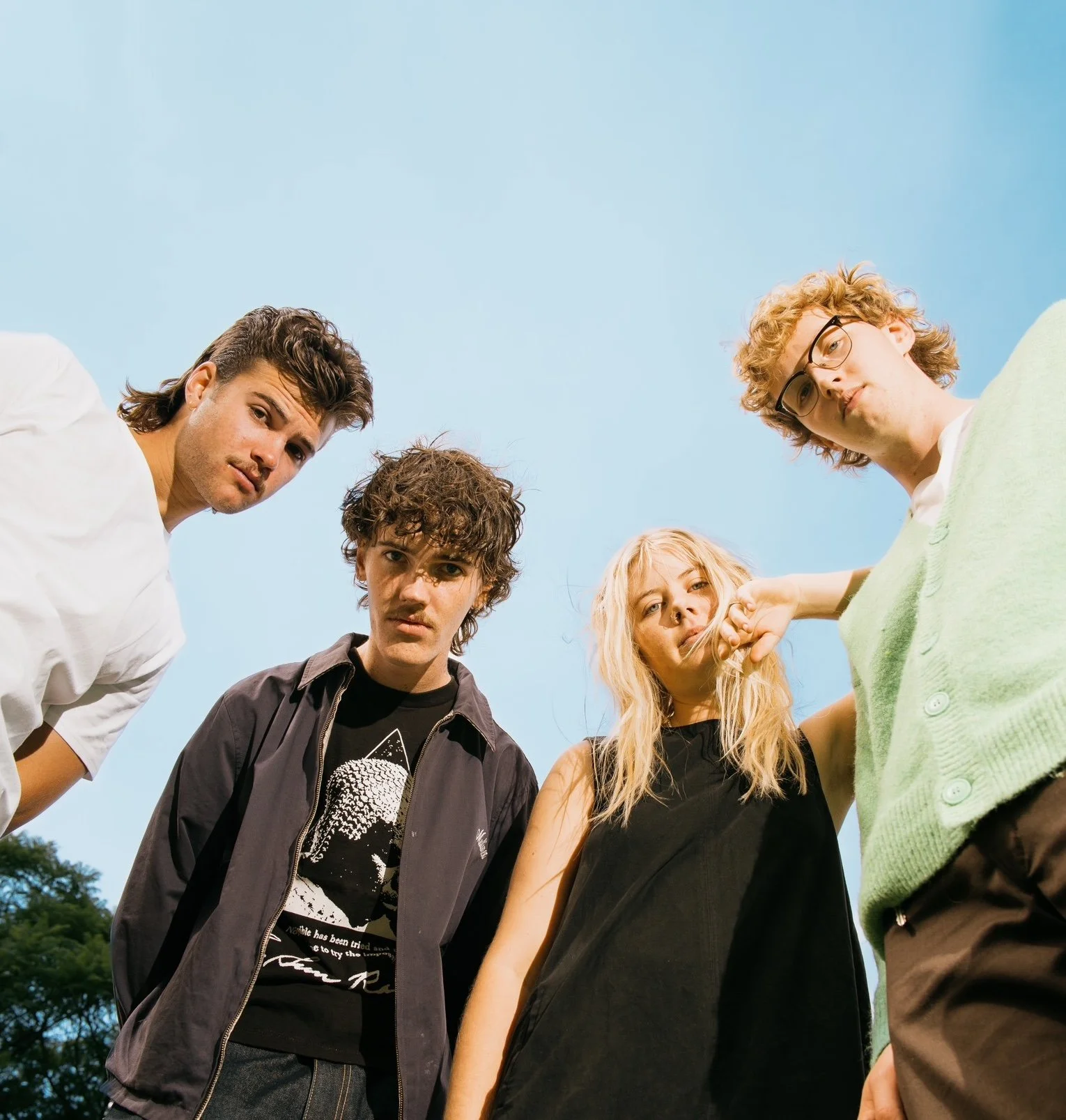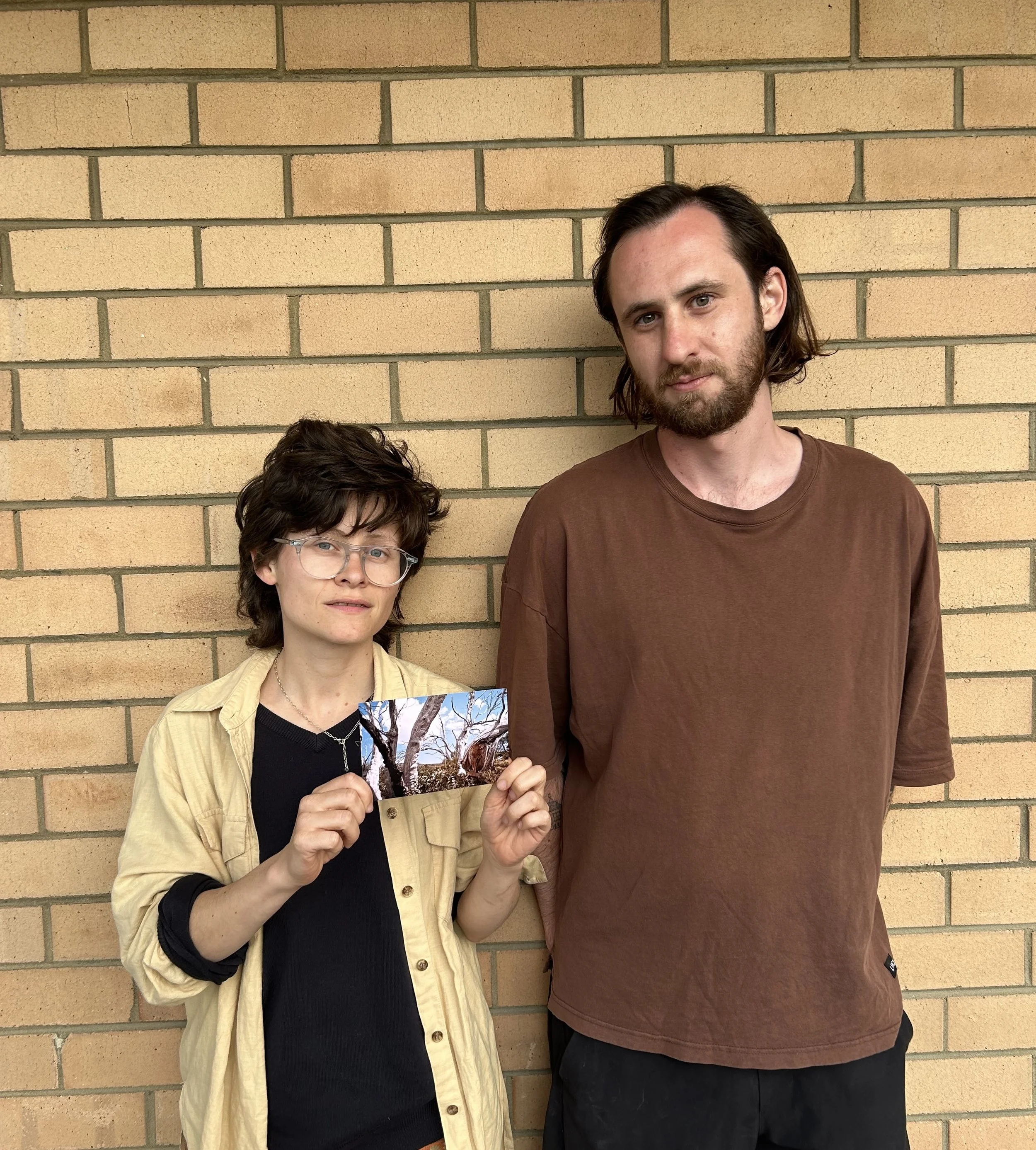Interview with Alex Laska of Kingswood
Written by: Sheri Young
Some people just never stop. Even as I call, late on a Tuesday night in the middle of June, Kingwood’s Alex Laska is deep in the midst of creating something. What exactly, he’s not sure, but he rambles off something obscure about commercial pop experimentation. Perhaps that’s difficult to imagine, for those that see Laska with an electric guitar fixed in his hands, but it’s just one of the facets of the musician’s expansive musical explorations.
Earlier in the year, the band’s last album, After Hours, Close to Dawn, caused something of a stir in the industry. Instead of the guitar driven rock ‘n’ roll early fans fell in love with on Microscopic Wars, the follow up record explored everything but. Embracing soul, and letting those unmistakable guitar stylings take a back seat, the diversion from their initial sound saw the release of the album become synonymous with the word ‘brave’; a term with which Laska is quickly becoming bored. “The idea of evolving musically shouldn’t be foreign, and I don’t think it’s really that brave. I don’t think there’s any other choice.” And there’s a myriad of musical icons to prove Laska’s point, from Bowie’s chameleon-like progression to more subtle versions in the work of the Rolling Stones, music doesn’t just stop when it finds something people like to hear, and it shouldn’t.
“It’s human nature to want to investigate new things. That curiosity to always push, to see where things can lead, and to always ask the next question. Why should that stop in music?”
Especially with albums as personal as the ones Laska writes, as the individual grows and changes, so must the music they create. “I feel like it was an inevitability, and a necessity, rather than anything to do with bravery.”
“Just because we found something that worked for us initially, as musicians and as people, four or five years later, you’re not going to apply the same principles because you’re not the same person. I’m so far removed from the person that I was when I wrote songs from Microscopic Wars.”
Even an individual song has its own path of evolution, from the initial thought, to what we hear on the album, to the way Laska decides to reimagine it on the night of a live show, “I thrive on live performance and creativity, and the ability to manipulate what I’ve created in the past, on a continual level,” that relentless, creative lust bleeding through to everything he does. Nothing is ever quite finished.
For fans who found the last album challenging, Laska doesn’t have anything comforting to say. “The next album is going to be fucking completely different.” To what degree? When I jokingly ask if it jumps genre to something more urban, Laska doesn’t even flinch, “I don’t necessarily think it will be a hip-hop album, but it will have more elements from sample based music.” Although, guitar enthusiasts can rejoice, Laska says he’ll, “probably bring back guitar solos,” for the next installment, citing legends such as Hendrix and Zeppelin as reference points. “I want the guitars to feel as weird as the samples do to kids in the modern world.” This sense that guitars are old-fashioned and part of a dying genre seems to be a view shared by a few in the industry, still, all of them are yet to abandon it.
Interviewing Laska is an interesting process, often interrupted by interjections on grammar and English literature, and passionate rants about the greatness of the Beatles, (Laska is beyond adamant the band underwent “one of the most magnificent transitions in musical history that has probably ever occurred. Who am I to argue, right?). Considering the volume, everything he says is honest and without facade, something he carries with him into his songwriting. With vocalist Fergus Linacre taking lead on most songs, it may surprise listeners to know those words actually belong to Laska. And when I say they belong to him, they really do. Each song finds its story within the learnings of Laska’s life, save for a few exaggerations here and there.
“I am so unashamedly honest throughout my entire life, probably to my detriment sometimes. Obviously there’s a bit of hyperbole in [the lyrics] because it’s a creative version of what happened in your life.”
But there are a few select songs that seem to cut through everything else, capturing a level of honesty that resonates a little too closely with the hearts of others. Big City is one of those songs; unbelievably human and beautifully simple, the track finds its feet with the assistance of a country influence. “The beauty about Big City is that there’s not much of [hyperbole], which I think is why it’s a lot of people’s favourite song, because it’s honest. Honesty beats everything, for me. The new trend is to just be as real as possible, because there’s so much bullshit in the world.”
Laska’s unwavering honesty proves to be a form of therapy for the musician, each performance both cathartic and painful. Of his live interpretations, Laska explains, “It definitely helps; it’s like when you have a problem and you tell a friend, but instead of telling a friend I’m telling fucking everyone.” Yet reliving a song isn’t always a mechanism for healing. “I can’t explain why it’s harder on certain nights, compared with others. When you perform it, you’re going into that space of replicating the music, so inevitably, your mind is going to go to the place it was when it first did it. It’s like this weird habitual motor function, where the feeling of it can conjure the emotions of what inspired it.”
As painful as it may be at times, it’s obvious that the songwriter won’t abandon his ways any time soon. Laska has a fire embedded deep within him. Something that will never be satisfied, only fueled by the myriad of directions he can take, and the stories he can tell. Thankfully, it’s not the kind of flame that has burned so many before him, but a genuine adoration of music that elicits the excitement of a child; a torch to guide his sonic explorations when things get dark.
“People will probably always be like, ‘Oh, why did you change again?!’ But the answer is because I’m human. The musicians that we idolize, like us, they were raised on a system of approaching music from an evolutionary point of view.”
“I just really like diversity in music, I always have, and I always will. It’ll be the governing force as to why our sound keeps changing.” Rock ‘n’ roll was just the beginning for Kingswood; from here on in, where they head next is anyone’s guess. Just make sure you’re along for the ride.











